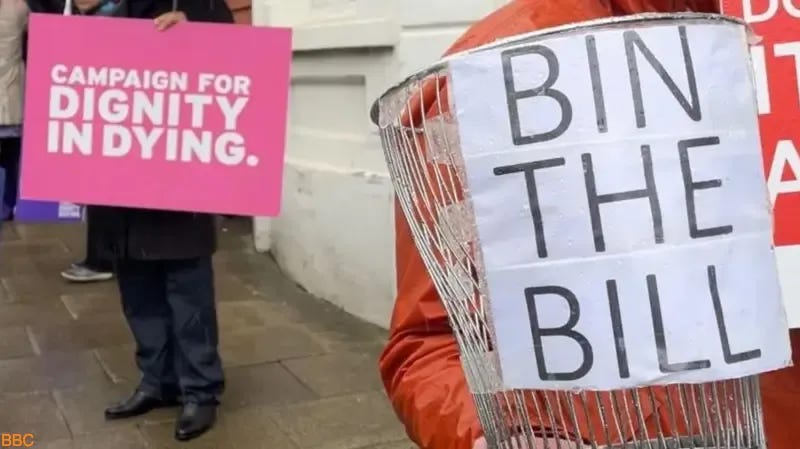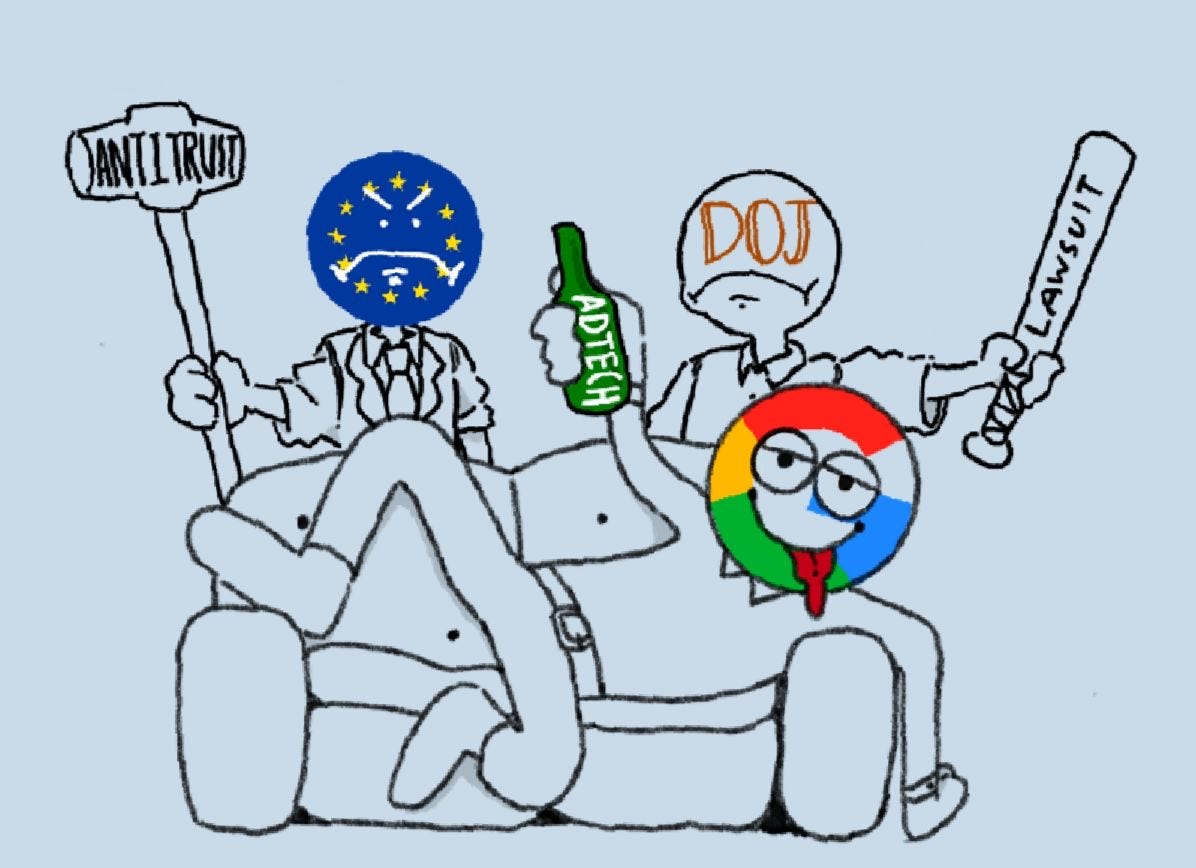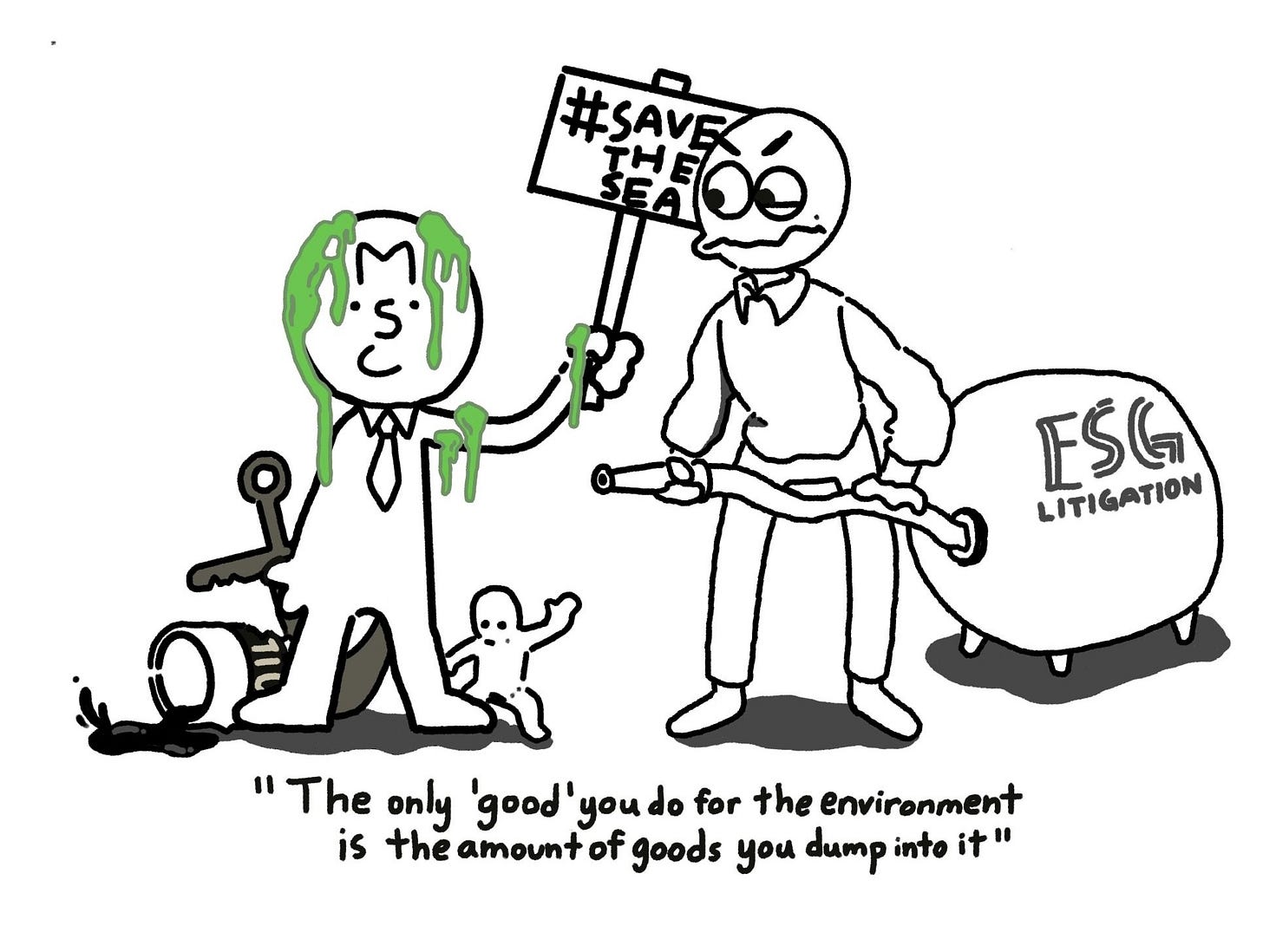Hello everyone! Welcome back to the LAN. I hope you found last weeks edition interesting and enjoy this edition.
Once again we have six articles, covering a range of topics. This varies from discussing the proposed assisted dying Bill, to exploring the CMA’s investigation of Google.
Ethan has also designed some graphics in the Commercial section, which is incredibly exciting! I look forward to seeing what else he creates in the future.
See you in the next edition!
All the best,
Jago Cahill-Patten
Publications Officer
General Section
Parliament to Consider First Assisted Dying Bill in a Decade
Elise Lunt
A Private Member’s bill proposing to legalise assisted dying is set to be introduced into Parliament later this month. Assisted dying is currently illegal under the Suicide Act 1961 and is punishable by up to 14 years imprisonment. However, if passed, the law is expected to allow terminally ill adults in England and Wales, with 6 months or less left to live and deemed to be of mental competence, the choice to end their lives.
Labour MP Kim Leadbeater confirmed her intention to re-introduce the issue of assisted dying to Parliament after winning a ballot allowing her to present a Private Member’s bill. “I… strongly believe that we should give people facing the most unbearable end to their life a choice about what that end is like,” she wrote in The Guardian. Leadbeater emphasised that this bill is about “genuine choice and autonomy,” allowing patients a comfortable and dignified death.
Given the sensitive nature of the topic, debate surrounding it is contentious and consensus is limited, particularly amongst politicians. The Prime Minister previously voted in favour of assisted dying when it was last brought before the Commons in 2015. He reaffirmed his support last December, stating that there “are grounds for changing the law,” adding it should be done “through a private members bill and a free vote.” Energy secretary Ed Miliband, has also historically been in support of reform to the law, believing that “the current situation is rather cruel.”
Others, however, have either voiced their scepticism for or opposition to the policy. The chancellor Rachel Reeves has said that she has yet to make up her mind, voicing concerns that “people would feel under pressure.” She would “want to make sure that the right safeguards were in place” to prevent potential coercion and abuse. Shabana Mahmood, the justice secretary, has historically expressed views against assisted dying and remarked earlier in the year that “once you cross that line you’ve crossed it for ever.”
Perhaps one of the more pertinent questions raised was by health secretary Wes Streeting, who asked: “Is palliative care in this country good enough so that the choice would be a real choice, or would people end their lives sooner than they wish because palliative care, end-of-life care, isn’t as good as it could be?” A report published this year by the organisation Marie Curie found that access to high-quality palliative care was “patchy,” “inconsistent,” calling it a state of “crisis.” If this bill is to be passed, now is the time to ensure end-of-life care is sufficiently supported and funded. System-wide issues, including poor communication and insufficient workforce capacity, need to be addressed. To ‘burden’ this sector of healthcare with such responsibility before it is in an adequate state to take it on, is arguably injudicious.
However, it appears the public are increasingly in favour of providing terminally ill patients with greater, and potentially better, options for them and their families. Published at the start of October, a Savanta poll of 2,000 adults in the UK revealed that nearly half (48 per cent) are in favour, more than double the percentage (21 per cent) of those who oppose it.
The bill is expected to be introduced formally at its First Reading on Wednesday 16th October and is scheduled for a Second Reading on Friday 29th November in which Kim Leadbeater hopes for “honest, compassionate and respectful debate.”
Biodiversity Finance: Can we finance our way out of the Climate Conundrum?
Abha Kulkarni
On the 27th of February, 2024, Europe saw the historic passing of the Nature Restoration Law by a qualified majority in the EU. With the primary objective being to restore 20% of ecosystems by 2030, this significant piece of legislation is the first in setting legally binding targets of Nature restoration upon the Member States. Despite initial opposition from right-wing lawmakers and farmers' associations, who cited food security concerns, 6000 scientists countered with an open letter. This emphasises that climate change and biodiversity loss pose the real threat to food security.
The legislation may appear to proffer European interests alone, with territorial efforts in biodiversity preservation, imposition of corporate responsibility, and an aim to meet the EU’s international commitments (COP15 Global Biodiversity Framework.) In actuality, it is the legal culmination of an already booming force reversing biodiversity loss: Biodiversity Finance.
Biodiversity is essentially the variety of life forms in an ecosystem. A greater variety is desired both from an evolutionary and economic perspective, but it is the latter that has triggered the involvement of finance in nature preservation. We live in a world with an ever-increasing dependence on the health of ecosystems, and economic development is contingent on the continued ability to benefit from natural resources. Depletion of biodiversity has the potential to not just reduce the viability of ecosystems, but also manifestly negatively impact the Global GDP.
Recognising these risks, the finance sector has stepped up to create reverse incentives of nature-positive investment. This starts with the due diligence procedure, which traditionally has involved lenders analysing the borrowing entity’s operations, its credit ratings, and the loan purpose. Now however, with degradation of natural resources that may be key to an entity’s operation, biological factors are being recognized as material factors. Factors, that must be considered when pricing risk and forecasting future financial performance. A good sign of this trend is the growing number of firms voluntarily disclosing their nature-related dependencies under the Taskforce on Nature-Related Disclosures (TNFD.)
In contrast, lenders are also looking at the impact of firm actions on biodiversity, whether they are contributing to loss or actually enriching biodiversity. This could be directly through their operations, or indirectly through green and sustainability-linked loans. All of this creates a reverse incentive to map out nature-related dependencies and reduce them, so as to experience lesser cashflow fluctuation from resource-depletion and supply chain disruptions. Ultimately this results in a reduction in the total negative impact on biodiversity. As clients are more likely to prefer firms that have good financial health and are reputationally linked to nature-positive investments, firms are likely to act upon these incentives. This may be for the sake of nature or their own financial future. With legislation like the European Nature Restoration Law, there is likely to be great regulatory pressure, causing firms to align their operations to prioritising corporate responsibility and biodiversity preservation. As such, with private funding, corporate responsibility and legally binding targets to move towards a biodiverse world, it truly begs the question whether we can finance our way out of the climate conundrum.
Unpacking the Diddy Allegations
Jenn Tan
In November 2023, Cassie Ventura filed a lawsuit against her ex-boyfriend Sean ‘Diddy’ Combs, accusing him of physical and sexual abuse throughout their 11-year relationship. Ventura going public gave many other women the courage to follow suit, bringing similar lawsuits of alleged sexual assault against Diddy. Today, there are more than 120 victims that have come forward.
Some significant allegations included one from a minor at the time. She was 17 years old in 2003 when Harve Pierre, then president of Diddy’s label Bad Boy Records, flew her on a private jet from Detroit to New York, where Diddy, Pierre, and a third man raped her. Additionally, music producer Rodney “Lil Rod” Jones Jr. has also accused Diddy of forcing him to “solicit sex workers”, some of whom were allegedly underage, and have them “perform sex acts to the pleasure of Mr Combs.”
On the 24th of March 2024, the Federal Bureau of Investigation (FBI) raided two of Diddy’s homes as part of an ongoing human trafficking investigation. They found multiple AR15s with their serial numbers filed off, and other weapons that Diddy made his staff carry. Further, they found more than 1000 bottles of baby oil and lubricant.
He was arrested on the 16th of September 2024 and his indictment was promptly unsealed the next day. Diddy was charged with racketeering conspiracy, sex trafficking, and transportation to engage in prostitution. He had allegedly thrown huge parties known as “Freak Offs”, luring women into his home with promises of a romantic relationship, then drugging them to facilitate the Freak Offs. Prosecution claims that Diddy would force women into lengthy sexual sessions (sometimes lasting multiple days) with male commercial sex workers, while he pleasured himself. These sessions lasted so long that women involved needed to receive fluids through intravenous (IV) drips afterwards, in order to “recover from the physical exertion and drug use.” Diddy recorded the encounters to blackmail the victims, thereby ensuring their discretion.
Following his arrest, the internet spent all week digging up old pictures and video clips that seemed to support the allegations made against Diddy. It is worth noting that in May 2024, CNN released footage of Diddy assaulting Ventura along the corridor of a hotel. He can be seen running after her, grabbing her hoodie and pulling her to the ground before kicking her multiple times. He then proceeds to shove her, and is later seen throwing a glass object. This matched up with the version of events included in the lawsuit that Ventura filed against him in 2023. The Los Angeles County District Attorney was however unable to charge Diddy with assault, as it occurred in 2016, thus falling outside of the limitation period for assault.
Amidst multiple denied bail requests, Diddy’s trial date has been set for the 5th of May next year. He faces a minimum sentence of 15 years, and a maximum of life in prison.
Revitalising Workers' Rights: The Impact of Labour’s New Employment Rights Bill
Isabella North Amigo
On the 10th October, the Labour Government published the Employment Rights Bill. Praised as a “once in a generation” overhaul of workers’ rights, the Bill is said to mark a sea change in industrial relations and deliver economic security and growth to businesses and workers across the UK.
Over the past decade, the balance of power has shifted significantly in favour of employers, allowing them to deny workers contractual security; exploit loopholes to reduce rights and wages; and block trade unions from challenging unfair practices. With one-in-five UK businesses with more than ten employees reporting staff shortages, revitalising the labour market is crucial for driving economic growth.
What the Bill Includes
The Bill will bring forward 28 individual employment reforms; further details on many of these will be provided through regulations. Amongst the key reforms which the Bill includes are:
Day one rights: The Bill allows workers to qualify for protection against unfair dismissal from day one, removing the existing two-year qualifying period.
Zero hours workers: The Bill proposes ending exploitative zero-hour contracts, allowing nearly 1 million zero hours workers the right to be offered guaranteed hours.
Flexible working: Flexible working will be made the default where practical.
Fire and rehire: In all but the most extreme circumstances fire and rehire practices will be banned. This prevents employers sacking and then rehiring employees on worse terms.
Equality Action Plans: The Bill introduces regulations requiring action plans to be drawn up to address gender pay gaps and to support workers through menopause.
Statutory sick pay: The Bill proposes a universal entitlement to sick pay from the first day of illness instead of the fourth.
Concerns
The he Bill has received a largely positive response, with Nicola Smith, head of employment at the Trades Union Congress (TUC), praising the government's efforts to “make work pay.” However, there are also significant criticisms. Some argue that the Bill could inadvertently harm businesses, especially smaller ones, by imposing increased financial burdens. Companies like Tesco are urging the government to strike a balance, ensuring the Bill boosts productivity and growth without sacrificing workers' rights.
Furthermore, former business secretary Sir Jacob Rees-Mogg has voiced fears that measures like increased flexibility for workers, could stifle growth and reduce opportunities, rather than create them. The TUC contends that greater flexibility will attract more job seekers and improve retention. Contrarily, many unions (e.g. Unite) feel the Bill falls short of expectations, criticising it as “watered down.” They point to caveat clauses in the fire-and-rehire proposal, which they argue leave loopholes that could be exploited by unscrupulous employers.
Despite these criticisms, Labour has fulfilled its manifesto commitment to introduce a comprehensive package of legislation to enhance worker rights within its first 100 days. Given that the UK lags significantly behind the OECD average in employment protection, this initiative represents a crucial step towards ensuring fair treatment for workers and addressing long-standing inequalities in the labour market.
Commercial Awareness Section
Antitrust:
In essence, Antitrust Laws form a regulatory framework to promote free and fair competition within the market. This typically includes anti-monopolistic measures, prohibiting potential mergers and acquisitions that would result in a company obtaining overly concentrated market power. Other anti-competitive behaviour such as price fixing or collusions may similarly fall under the ambit of antitrust regulation. Antitrust laws are typically enforced by a regulatory agency such as the Competition and Markets Authority (UK) and the Federal Trade Commission (US). Broadly speaking, through antitrust measures, states ensure that companies with more market power cannot unfairly inhibit the growth of developing companies. In the long run, economists believe such competition keeps consumer prices lower whilst fostering continual innovation.
Competition teams in commercial law firms typically tackle antitrust issues. Solicitors will often flag potential antitrust issues to their clients. Following this, they may draft persuasive documents to the relevant authorities on why the client’s proposed act would not have adverse impacts on competition. As exemplified by the sea of antitrust litigation which Big Tech Companies have recently faced, this area of commercial law is extremely prevalent. This is even more so following the enactment of more regulatory measures such as the EU Digital Markets Act.
Justin Fu
CMA Takes on Google in Competition Investigation
Navika Jangra
Last month, the UK’s competition regulator, the Competition and Markets Authority (CMA), found Google had abused its market position. This was in favouring its own advertising technology services over those of its competitors. The crackdown is the latest episode in a series of enforcement actions by regulators around the world.
Background
Advertising technology (ad tech) is big business. In the UK alone, the industry was worth £36.6 billion in 2023, with £14.7 billion going to Google.
The sector encompasses a range of digital tools for the buying and selling of online ad spaces. Publisher servers allow websites and apps to manage advertising spaces on their platforms; ad buying tools enable advertisers to purchase ads; and ad exchanges act as marketplaces that coordinate auctions between publishers and advertisers.
Google operates across all three stages of this process. Its services include Google Ads and DV360 (ad buying), DFP (ad selling), and AdX (ad exchange).
The CMA’s Findings
The CMA alleges that, since 2015, Google has breached Chapter II of the Competition Act 1998 by abusing its dominant market position to push out competitors. Specifically, the CMA claims that AdX gives preferential treatment to bids from Google Ads, grants first refusal to ads managed by DFP, and manipulates bid prices. These practices are estimated to have cost publishers and advertisers £1.8 billion.
Google has until March 2025 to present its defence, with the CMA set to conclude its investigation by December 2025. If the findings are upheld, the CMA could impose fines of up to 10% of Google’s annual global turnover and issue legally binding directions to end anti-competitive behaviour.
Taming Tech: A Global Phenomenon
There is growing evidence the crackdown on Big Tech is here to stay, both in the UK and internationally.
The Digital Markets, Competition and Consumers Act 2024, due to come into force by January 2025, will introduce a stricter regime for the UK’s tech sector. The Digital Markets Unit (A new division of the CMA) will investigate companies with ‘Strategic Market Status.’ They will enforce specialised codes of conduct and impose fines; and ‘conduct requirements’ and ‘pro-competition interventions’ on non-compliant firms.
In the EU, the Digital Markets Act 2022 has introduced a swathe of competition obligations for tech firms. The Act empowers the European Commission to impose hefty fines for antitrust breaches, reaching as much as 20% of worldwide turnover. In June 2023, the European Commission even ordered Google to reorganise and divest its ad tech business to prevent future market abuses.
Across the pond, the US Department of Justice is currently suing Google for monopolising the industry. Regulators are seeking to break up Google’s ad businesses and secure damages for federal agencies that overpaid for ad spaces.
Future Challenges
While regulatory actions against tech firms are often hailed as steps towards a fairer, more dynamic market, there are limits to what regulators can achieve.
On one hand, an overly heavy-handed approach risks stifling innovation. As such, Apple delayed the launch of new AI features in the EU citing “regulatory uncertainties.” On the other hand, there are doubts over the ability of financial penalties to deter anti-competitive behaviour. When major tech firms earnt enough in just the first week of 2024 to pay all the fines they had incurred in 2023, reining in Big Tech will require more than just a slap on the wrist.
Greenwashing:
Greenwashing is the process by which companies create a false or misleading impression of the environmental soundness of their products. This typically involves downplaying environmentally damaging processes, overemphasising sustainable aspects of a product, or hiding potential trade-offs. With a rising emphasis on sustainable development, greenwashing is a measure used to increase a product’s marketability. By making borderline deceitful representations, companies can mislead investors or consumers who seek environmentally friendly alternatives to invest in or purchase their products. Ultimately, this allows companies to profit, often selling the product at a market premium. Recently, this strategy has been employed by some of the world’s biggest carbon emitters: energy companies and car companies. Most notably, Volkswagen has been fined a total of $34.69 billion for utilising software in its cars that reported lowered emission numbers. The rising prominence of greenwashing may indicate an increase in ESG Litigation. Companies will have to consult the regulatory and litigation teams of commercial firms to ensure regulatory laws are complied with, and that no misrepresentations are made.
Justin Fu
Rising Tide of ESG Litigation: Greenwashing, Shipping, and the Future of Corporate Accountability
Matthew Wang
#SaveTheSea. “Cruising the blue in a green way.”
These were slogans used by MSC cruises, which claimed its ships were “powered by one of the cleanest marine fuels: ‘Liquified Natural Gas’ (LNG).”
On September 30th 2024, the Dutch Advertising Code Committee (ACC), an independent organisation responsible for enforcing self-regulatory advertising rules in the Netherlands, reviewed the case brought by the environmental group Fossielvrij NL. These were on the misleading nature of MSC Cruises’ advertisements.
The Committee held that while LNG was a relatively less polluting fuel, it could not be considered a “clean fuel.” This is because its extraction involved fracking, leakage and methane pollution - information undisclosed by MSC Cruises. Since MSC’s eco-friendly advertisements could induce consumers to make decisions they might not otherwise have made, MSC Cruises was found to breach the Dutch Advertisement Code. They had to discontinue such advertisements.
Trends
This case reflects a wider trend in ESG litigation. The ACC has held that ambiguous terms like “environmentally friendly,” “zero CO2” and “good for the environment,” without adequate substantiation, are misleading. Where the Dutch Advertisement Code has been breached, the ACC will recommend advertisers to discontinue their advertisement. Where this is not followed, the ACC will label the advertiser as “non-compliant” on the Advertising Code Foundation website, and the Authority for Consumers and Markets may take enforcement measures. Thus, just because these advertising measures are self-regulatory, greenwashing can still severely damage a company’s reputation.
The shipping industry, in particular, is prioritising the decarbonisation aspect of ESG. Stephanie Leow, managing director at Standard Chartered Bank in Hong Kong, explained that the loans and interest rates banks offer now depend on clients’ ESG position statements. Shipping companies must now publish plans and procedures to calculate the carbon efficiency of their fleet, to secure more favourable credit terms. Other banks, like BNP Paribas and MUFG, are also investing in EV vessels and hydrogen fuel, whilst only investing in less energy-efficient ships in the short term. This reflects the shipping industry’s push to surpass ESG guidelines from the Loan Market Association and Poseidon Principles initiative.
ESG: a Litigation Snowball
ESG litigation has rapidly developed through (1) growing awareness of ESG issues; (2) increasing inquiries; (3) heightened supervision of ESG issues; and (4) various parties, including consumers, regulators, stakeholders and investors, filing cases against companies for their ESG policies and actions. These are all running in a virtuous cycle (or, depending on your perspective, vicious). Landmark cases such as ClientEarth v Shell, despite being unsuccessful for ClientEarth, demonstrated that directors can be personally implicated in climate litigation. Despite concerns of litigation floodgates, these cases are alerting directors to quickly upgrade their ESG policies.
Siedse Willems, senior associate at Taylor Wessings, believes that greenwashing litigation is rising. This coincides with the new EU Directive 2024/825, testing sustainability claims more stringently. The European Central Bank, besides issuing supervisory notices, may impose penalties on banks who fail to submit a materiality assessment by the relevant deadline. This shows greater regulatory efforts on a continental level.
‘ESG is Dead’
Against this backdrop, Lindsay Hooper, CEO of the University of Cambridge Institute for Sustainability Leadership, made a provocative claim: “ESG is dead.” She argued that while setting ESG policies give the guise of progress, they lead to little concrete action. There is a fundamental tension between profitability and sustainability, and the market must eliminate this and financially incentivise more ambitious ESG policies.
However, the success of Fossielvrij NL against MSC Cruises and increasingly stringent ESG policies in the Shipping Industry, suggests an increasing financial incentive to decarbonise in an honest and transparent way. After all, most companies now accept Sir Nicholas Stern’s proposition: climate change is “the greatest market failure the world has ever seen.”
Links to More Articles:
Justin Fu
Apple’s potential antitrust violation:
Apple is alleged to stifle competition on its mobile app store. Despite measures from earlier in the year, competition authorities claim that the company has inadequately encouraged users to rely on non-App Store software, imposing fees which disincentivise such alternatives. As such, Apple is set to potentially face charges under the recently enforceable EU Digital Markets Act.
Chinese stimulus
As of September 2024, the Chinese government has announced upcoming stimulus measures aimed at boosting GDP growth (back to 5%) and reinvigorating consumption. This includes simultaneous implementation of interest rate cuts, reducing minimum reserve requirements by lenders, and fiscal stimulus towards the equity market.
OpenAI seeks investor exclusivity
OpenAI has recently secured $6.6 billion from investors in the most recent round of funding. Their total valuation now exceeds $150 billion, the highest in Silicon Valley History. However, they have recently sought investor exclusivity. In doing so, the company hopes to restrict rival startups’ access to capital.
London Stock Exchange Reform
Finalised and implemented in July 2024, there are significant reforms to the UK's listing rules. Such reforms are inherently deregulatory, aiming to attract companies to list domestically with key provisions such as:
Increased executive power to make decisions without shareholder approval
Increased flexibility for companies to adopt dual class share structure for investors and institutional investors.












Learn about the legal deception history in my podcast here:
https://soberchristiangentlemanpodcast.substack.com/p/s2-ep-6-legal-deception-the-magic